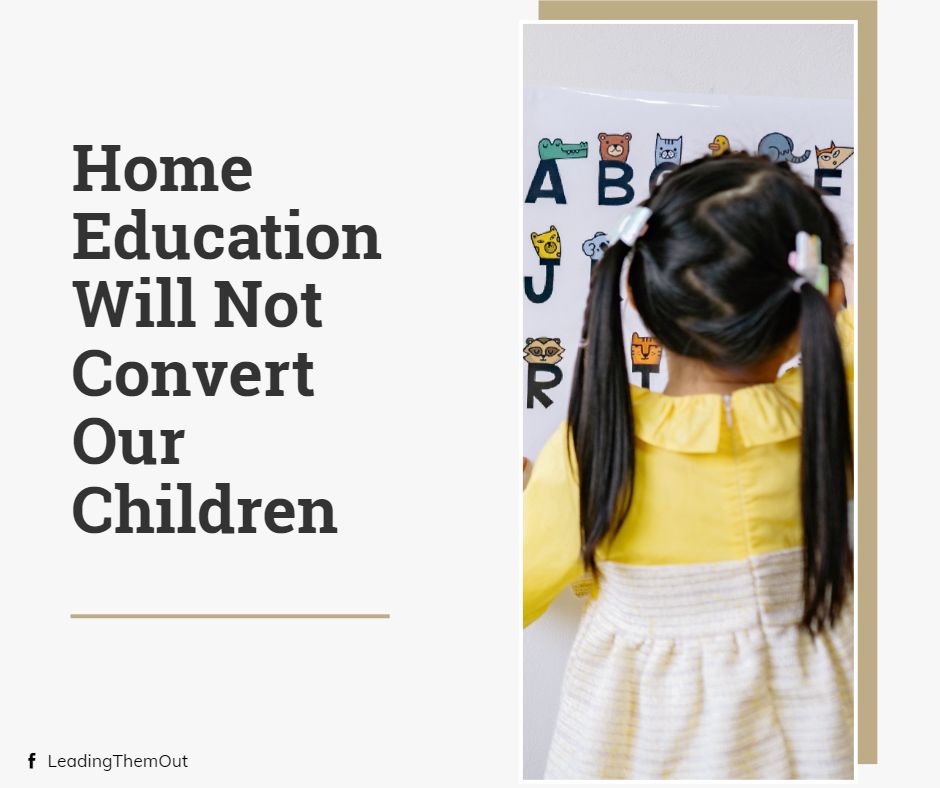One of the biggest mistakes a home educator can make is to believe that home education converts our children. This line of thought leads to panic parenting – panic that all is lost if we do not use exactly the right curriculum, panic if we miss family devotions twice in row, panic if our children spend time with unbelievers, or just good old-fashioned ‘we might be missing a trick’ kind of panic. Eleven years down the road of parenting and I can unhesitatingly testify to the fact that if conversion in childhood were down to perfect mothering, my children would not love Christ. This middle-aged sinner is inherently flawed and makes too many of the same mistakes over and over again.
God’s Sovereignty and Man’s Responsibility
What an encouragement to consider the account of Lazarus as a stunning example of the contrast between the work of God and the work of his followers. Who brings Lazarus to life? There is no doubt that Jesus performs the miracle. But what does he say to his disciples? ‘Take away the stone’ (John 11:39). The beauty of the account is that he gives his disciples, who were fearful of even returning to Judea (John 11:8), a task amidst the miracle. That task was something practical that they could do; they could not raise Lazarus from the dead but they could roll away the stone.
Growing in an understanding of the doctrine of God’s sovereignty and man’s responsibility actually serves to focus the mind, heart and hand. We worry less, pray more and work harder. God does not expect us to change our children’s hearts. He calls us to use the means he has provided and it is for this that we stand accountable to God, not whether or not our children ultimately walk with Christ.
What are the means that God has given Christian educators to bring up our children in the Lord?
1. A Godly Education
The idea of Christian education is often mocked and scoffed. It is deeply controversial, costly and demanding. Nevertheless, it makes sense of what we expect education to achieve, namely that our children learn what they are taught! How can we assume our little ones will learn maths, science and history from an unbeliever and then not to pick up on the godlessness that accompanies it? To teach biology without glorifying the Creator is a comment on the Creator. To teach history without measuring the words and actions of men against the word of the chief of books is to dishonour the author of history.
The Israelites were led into a pagan land from which they never completely removed the pagans, but God foresaw this and already had a plan. He instructed parents, ‘You shall teach [these words] diligently to your children, and shall talk of them when you sit in your house, and when you walk by the way, and when you lie down, and when you rise.’ (Deut 6:7). He never instructed the Israelites to send their children to the Canaanites for their education! Is it too much to argue that the best vaccination for our children against a godless culture is to deliberately teach them the word and the work of the Lord, so that they are equipped and prepared to meet the wickedness and disbelief that the world will try to sell them?
2. Wisdom
There is a particular beauty in the fact that no two families are the same. This is obvious in an external sense since we have varying family sizes, and differing combinations of age and sex. But in an internal sense, we have an abundance of characters, gifts and abilities to train up. It is the job of the parent to know our children REALLY well. We know what frustrates and upsets our children and how to cheer them up. A parent knows when a lesson will be hard or easy; when to push our children and when to expect a little less. In the light of this, there is no ‘one size fits all’ to home education. This would make our job too easy, remove our reliance on our Creator, and give rise to legalism.
We need wisdom to thrash out the nitty-gritty of how we educate our children. When we cannot decide which Math curriculum to use, we ask for wisdom. If two children continually squabble and clash, we ask for wisdom. We ask for wisdom when we cannot seem to find that five minutes for spelling and we have confidence that God ‘gives generously to all without reproach.’ (James 1:5).
3. Prayer
Life is lived in stages to a certain extent and the parenting stage is a busy and tiring one. Most of us probably struggle to spend super long periods of time in prayer. It can be source of self-condemnation if we think we should be spending two hours on our knees before our children wake up. Nevertheless, it is helpful to find a certain time and a certain place to pray regularly, even if it is just for a few minutes. We probably already pray frequently without realising and possibly discount it because it doesn’t fall under the ‘two hours on our knees in one sitting’ category! Take a moment to consider some of the regular times in the day or week where we might have a habit of prayer: during a quiet time, with our spouse, at meal times, family devotions, at the start of lessons, before bed, with a distressed child, with other believers.
There is much peace to be gained in leaving the task of convicting and converting our children’s hearts in the hands of the one convicted and converted our own hearts. Yet what an indescribable honour to be called to ‘roll away the stone.’

